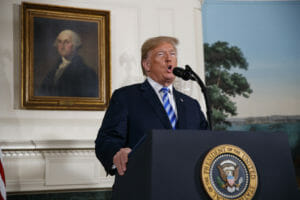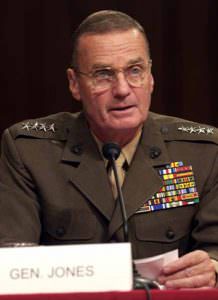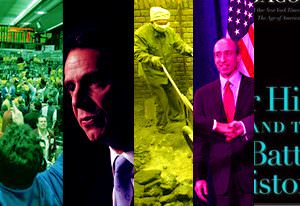Not a Team of Rivals at All
When the journalistic pack bites into a tasty cliché, they often refuse to let go, lazily chewing and regurgitating a phrase like "team of rivals" long after the flavor is gone.When the journalistic pack bites into a tasty cliché, they often refuse to let go, lazily chewing and regurgitating a phrase like “team of rivals” long after the flavor is gone. Derived from the Doris Kearns Goodwin book on Lincoln’s Cabinet, that morsel had scant relevance to the Cabinet being assembled by Barack Obama, as the president-elect bravely tried to explain when he introduced his national security team.
But as Obama learned many months ago, our leading media minds tend to be far less interested in real ideas and policies than in a fixed narrative about personalities. So his decision to nominate primary rival Hillary Rodham Clinton as secretary of state, with all the friction that would supposedly generate, became the focus of the news. All his other appointees somehow had to be crammed into the same imaginary framework.
According to that storyline, Obama will soon find himself in conflict not only with Clinton but also with Robert Gates, the holdover Bush defense secretary, and with James Jones, the retired Marine general chosen as national security adviser. Everyone will feud and fuss over the timeline for withdrawal from Iraq, how to confront or cajole Iran, and whether to spend more money on defense or diplomacy.
The clear implication is that the national security apparatus could collapse into chaos within days of the inauguration.
Now this distorted perspective on the Obama national security Cabinet may end up serving the new president very well, by setting up an expectation of disaster that he will easily avoid. But it doesn’t reflect what he is actually trying to do — or why he feels comfortable with those he has chosen to advise him.
The reason is quite simple: Rather than a discordant group that will spend the next four years arguing over the Iraq war resolution, Obama has chosen people who largely agree with him and each other about how to restore American influence and prestige in the world. That is particularly true of Clinton, Gates and Gen. Jones, who will guide U.S. foreign and military policy in a direction set by the president.
Where they all agree is on the pragmatic application of “soft power” — a wonkish term referring to the ideological, cultural and philanthropic aspects of diplomatic relations as opposed to purely economic and military “hard power.”
In November 2007, Gates delivered a farsighted speech that called for sharp increases in spending on diplomacy, foreign aid and international communications. He openly complained that al-Qaida is more adept in spreading its message than the United States, and he warned that future conflicts will not be resolved by military power. Both Obama and Clinton emphasized that in their campaign critiques of Bush administration policy, which were more alike than anyone acknowledged at the time. Associates of Gen. Jones have said that he shares the same outlook.
Their consensus view is that American policymakers should pursue global security and prosperity by using all the instruments available to them, rather than crudely wielding or threatening force in every circumstance, as the Bush administration tended to do. They will renew our commitment to multilateral organizations such as the United Nations and NATO, for example, rather than denigrating them.
It should go without saying that active diplomacy in no way precludes the use of force when absolutely necessary, but it never does. That is why Obama wisely selected figures known for “toughness,” including Clinton, while planning to emphasize negotiation and diplomacy. They insulate him against charges of weakness while proving that he is unafraid of dissent and debate.
As the president-elect predicted on Monday, there will be plenty of disagreements among his advisers. Sometimes they will disagree with him, too. But don’t be surprised when he begins to enact the new policies enunciated during the campaign on Iraq, Iran, Afghanistan, the Mideast and the United Nations — or when his new team sets out to implement them without undue rivalry.
Joe Conason writes for the New York Observer.
© 2008 Creators Syndicate Inc.
Your support matters…Independent journalism is under threat and overshadowed by heavily funded mainstream media.
You can help level the playing field. Become a member.
Your tax-deductible contribution keeps us digging beneath the headlines to give you thought-provoking, investigative reporting and analysis that unearths what's really happening- without compromise.
Give today to support our courageous, independent journalists.






You need to be a supporter to comment.
There are currently no responses to this article.
Be the first to respond.